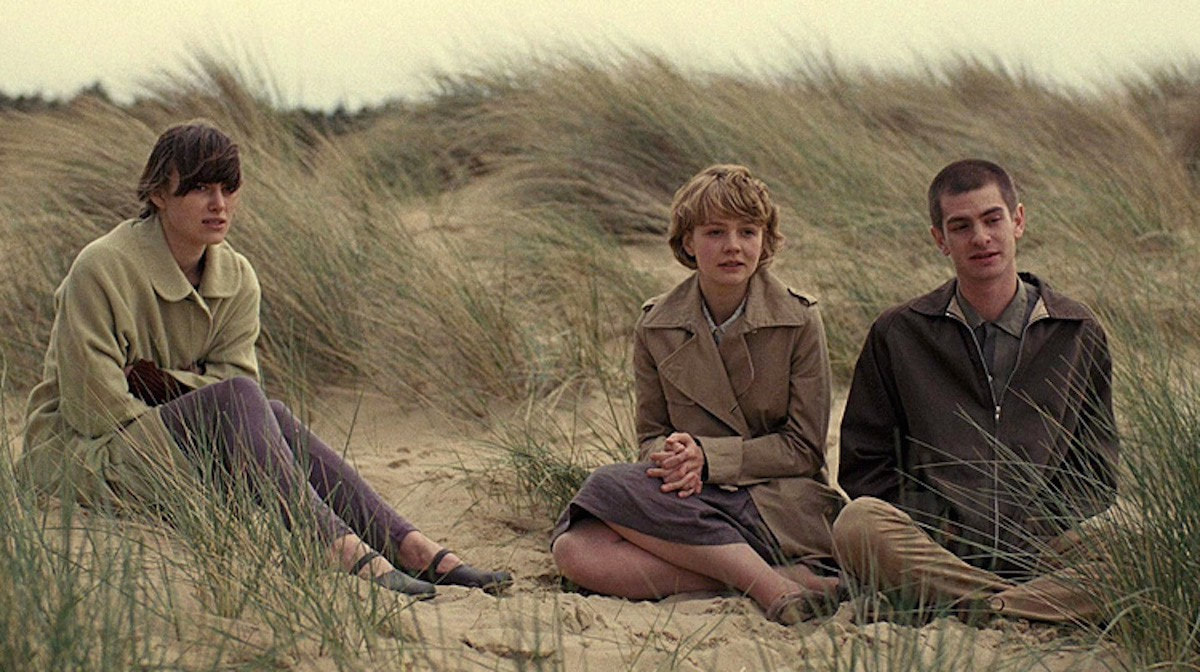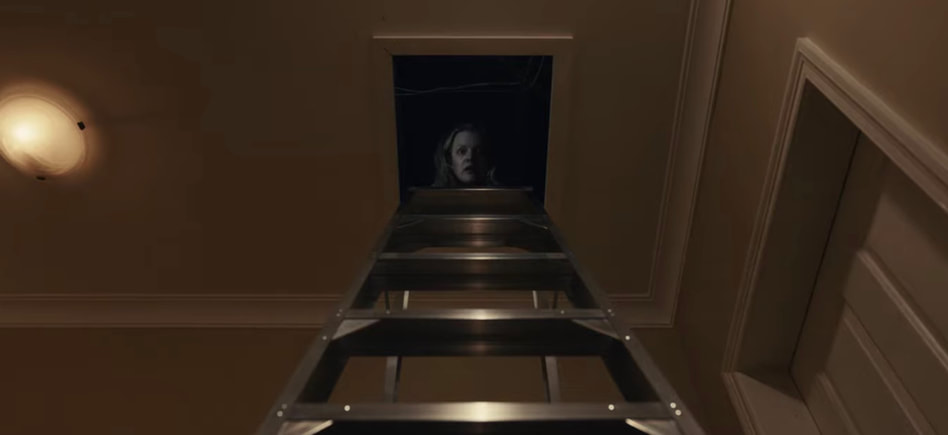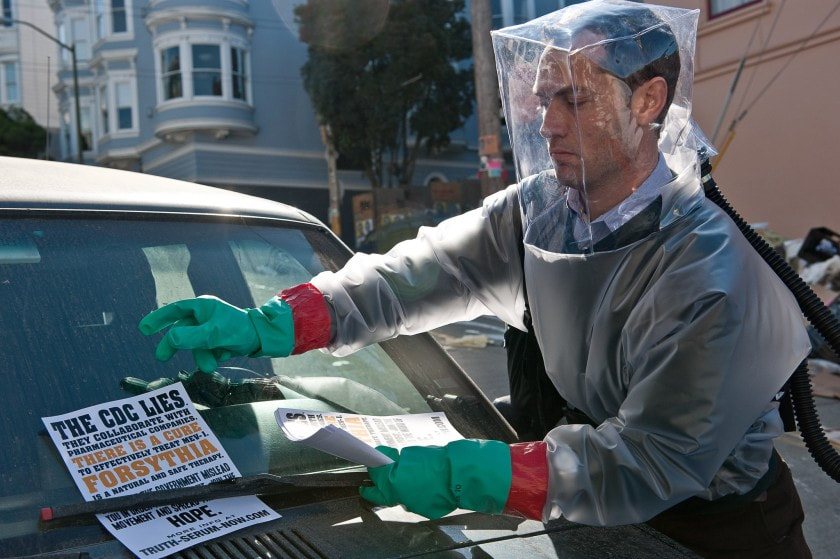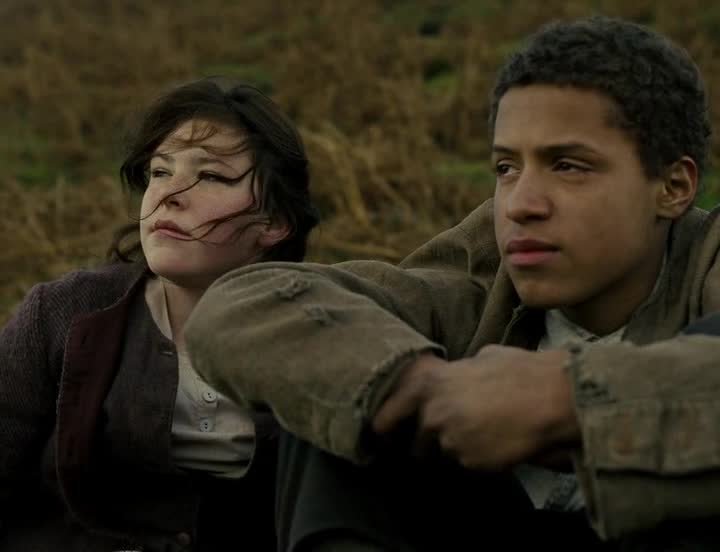|
An imagined dystopian past informs the dystopian present in Mark Romanek’s heartbreaker Never Let Me Go. Adapted from Kazuo Ishiguro’s acclaimed novel, the film begins with text informing the viewer of an imagined medical breakthrough and a cut to a grim Tommy (Andrew Garfield) on an operating table while Kathy (Carey Mulligan) watches in mournful anticipation. However, we quickly learn in flashbacks to their creepy boarding school that they aren’t the beneficiaries of this breakthrough, but the breakthrough themselves. Tommy is prone to uncontrollable fits of impotent rage, both in his youth and his adulthood. Romanek’s tale of unbreakable caste bonds and the humanity that can’t help but grow in spite of it is its own primal scream, although we see that the boarding school did such an effective job that most students don’t even have that capability anymore.
0 Comments
Horror movies that attempt to achieve relevance based on their technological era are frequently duds. Leigh Whannell’s chilling The Invisible Man does better than the instantly forgettable schlock fests that rely on some social media platform and goes to the tech bro source for its shorthand scares. I don’t know that the Travis Kalanick’s or Adam Neumann’s of the world are using their obscene piles of wealth to jealously entrap women, but I would certainly believe it. Whannell, a veteran of the Saw and Insidious franchises, uses his considerable horror chops to construct a remake of a classic that marinates in what made said classic inherently creepy while also tapping into a modern-day zeitgeist of the rich and their greedy possessiveness.
With Traffic, Steven Soderbergh popularized the hyperlink film, wherein multiple branching characters and plots intersect with each other around a broad theme, and perfects it eleven years later with Contagion. Scott Z. Burns’ rigorous and deeply-researched script combines with Soderbergh’s clinical yet empathic direction to produce a believable global response to a new pandemic, complete with both the dedicated public servants and the exploitative hucksters that can and do arise in such a scenario. Contagion tragically provides a window into a competent world that seems further and further away, as the antagonist of the film shares far too many qualities with the current president. This is a film that could be judged as accurate upon its release but now seems quaint. A unified governmental response and a population that grudgingly accepts what must be done? Soderbergh, you naïve rube!
Having never seen or read any other versions of Emily Bronte’s classic novel Wuthering Heights, it’s difficult to say what Andrea Arnold’s staggering 2012 adaptation does differently. Based on cast lists from earlier adaptations, it would appear that the younger incarnations of star-crossed lovers Catherine and Heathcliff are left out. Arnold does the opposite, giving over half the film to teen actors and the other to their adult counterparts. She also casts a person of color in the role of Heathcliff, a status that Bronte hinted at but has perhaps never before been realized onscreen. Lastly, by beginning the film with an adult Heathcliff (James Howson) and then flashing back to his arrival in the English moors as a child, Arnold frames the entire film as his memory and subsequently films much of her masterwork as a series of sensations as much as a series of conversations. It’s a transporting and revelatory experience, and a fitting companion piece to Greta Gerwig’s Little Women in how both find the time-traveling universality in 19th century works of literature.
Director Kitty Green’s past as a documentarian is all over her first feature, The Assistant. Her journalistic drama is the recreation of a single day in the life of a fictionalized movie producer’s office. This producer, never seen and only heard through doors and over phones, exists in a pre-MeToo world that allows him to flaunt his casting couch practices and berate his staff, particularly new-ish assistant Jane (Julia Garner). Jane’s day is so stressful that one can see her life expectancy shorten the longer she stays in her job. One more implied demand to look the other way, and her telomeres shorten. One more tacit acknowledgement that everyone is complicit in their own way, and her resting blood pressure rises. In its dedication to a single shift and its setting, The Assistant can become as interminable as an actual white-collar day but the complete experience is greater as a whole than in parts. It’s worth the gray atmosphere and harsh lighting to absorb the lesson.
|
Side PiecesRandom projects from the MMC Universe. Categories
All
Archives
April 2023
|





 RSS Feed
RSS Feed